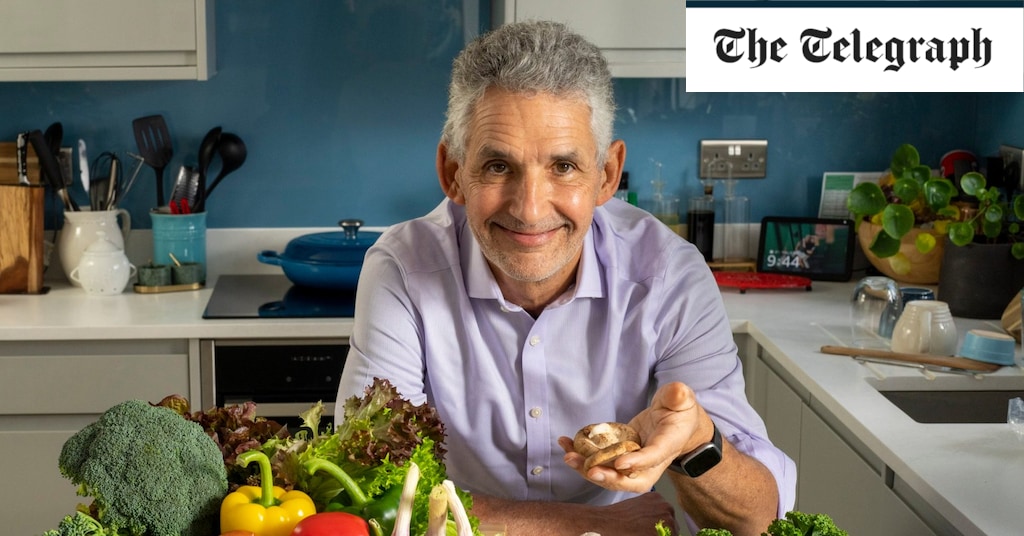A good example of the critical role our changing environment plays is the twin study of type 2 diabetes.
Researchers in the 1970s and 1980s wanted to know whether this rather rare disease was hereditary. At the time, they found many discordant identical twins, one of whom had type 2 diabetes but their siblings did not, so genetics did not appear to be a major factor.
However, when we fast forward 30 years and perform a similar analysis on European twins in the 2000s, we find used to be It’s now so heritable that it’s hard to find any inconsistent matches. So, what has changed? environment.
Genes determine whether you are susceptible to type 2 diabetes, but they have no role at all unless the food environment is harmful (which also damages our gut microbes). Genes are only activated when ultra-processed foods (UPF) are present in large amounts. Genes have not changed, but our food environment has changed dramatically.
Imagine you have 100 people. Half can swim and the other half can’t swim at all. When on land, you can’t tell them apart. But once in deep water, the differences quickly become apparent.
In the 1970s and 1980s, we all lived on dry land. Today we are all swimming in a sea of ultra-processed, ultra-palatable foods that make up about 60% of our diets and are designed to make most of us eat too much.
Ten years ago, I was also interested in whether food preferences were genetic. We asked twins what foods they liked and disliked, and we found quite a bit of genetic influence. In fact, it exceeded my expectations. In particular, enjoyment of stronger bitter and spicy flavors, such as garlic and chili peppers, appears to have the strongest genetic component.
We even found genetically influenced meat preferences, and to a lesser extent salad preferences. In earlier times this might have sparked a hunt for vegetarian genes, but now we’re wiser. These may indicate that we have different thresholds for liking or disliking food. But once again, your environment determines whether these genes actually make a difference: you’d be hard-pressed to find people in Italy who don’t eat garlic, or in Thailand who don’t eat chili peppers, because children are exposed to them very early. chili. Likewise, your environment determines whether your genes function.
Of course, our food preferences don’t tell us much about how our bodies respond to foods.
Despite testing companies’ claims, useful genetic tests are limited to a few specific foods. For example, you can get some reliable information about your ability to metabolize caffeine, alcohol, and lactose. But most genetic tests on how to process other foods, nutrients, or vitamins are completely useless or bogus.
Understanding how lactose in dairy products is metabolized is sometimes clinically useful, but you may already know how coffee and alcohol are metabolized through self-experimentation. If a cup of coffee keeps you up at night, or a glass of wine puts you to sleep, you have your answer. How we metabolize food is complex and not just about genes. Zoes Predict research* shows that even identical twins have very different metabolic responses to consuming fat and sugar. Even though they are essentially genetic clones, their responses are only slightly more similar than to non-family members. We found that the combination of gut microbes and the structure and properties of the food had a greater impact.
I changed my mind about the influence of genes on our personal decisions and choices. Relying on genetics to tell us what foods we should eat is a waste of time and money. Genetic testing can be used to choose the best exercise or exercise, but again it is useless, exercise, while good for you, unfortunately does not help with weight loss.
You can’t change your parents, but we do have more food choices than they did, and with the right knowledge, you can make better dietary decisions. No matter your genetics, if you improve your food environment and eat the right foods, you can reduce hunger and maintain the health you want. So ditch the UPF and eat real food, mostly plants.
*Zoe Predict is an ongoing study led by Tim Spector at King’s College London
#Tim #Spector #Defeat #Genetic #Programming
Image Source : www.telegraph.co.uk
